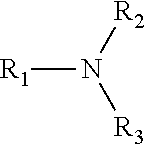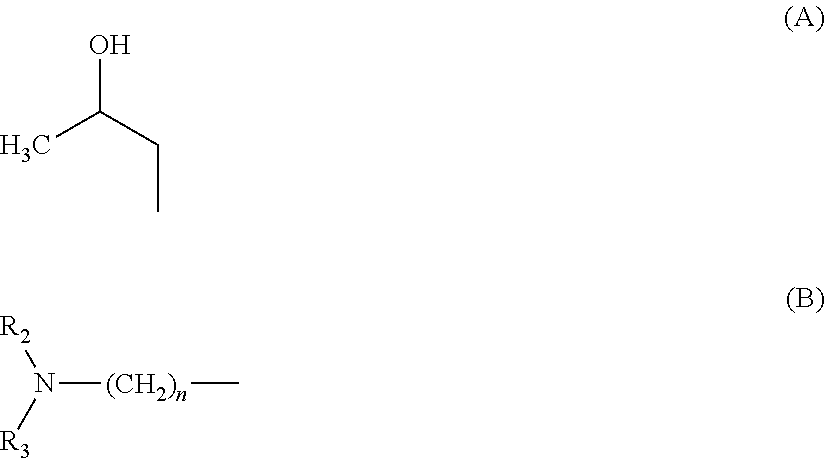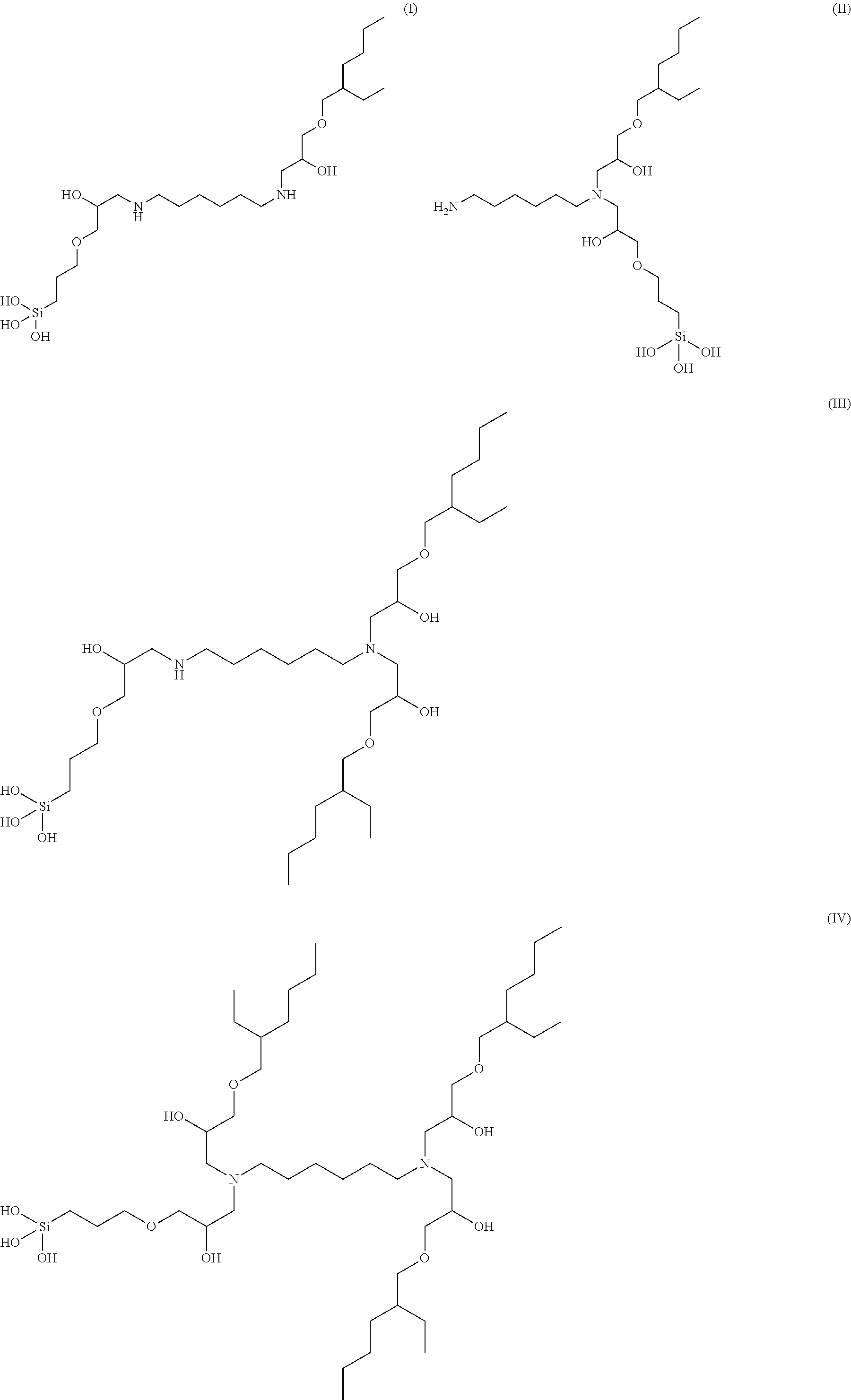Reducing aluminosilicate scale in the bayer process
a technology of aluminosilicate and bayer process, which is applied in the field of matter composition, can solve the problems of affecting liquor throughput, affecting liquor throughput, and affecting the recycling of liquor within the fluid circuit, so as to reduce the siliceous scale
- Summary
- Abstract
- Description
- Claims
- Application Information
AI Technical Summary
Problems solved by technology
Method used
Image
Examples
examples
[0101]The foregoing may be better understood by reference to the following examples, which are presented for purposes of illustration and are not intended to limit the scope of the invention.
[0102]I. Example of a Synthesis Reaction A, E and G.
[0103]In a typical synthesis reaction the three constituents: A (e.g., hexane diamine), G (e.g. 3-glycidoxypropyltrimethoxysilane) and E (e.g. ethyl hexyl glycidyl ether) are added to a suitable reaction vessel at a temperature between 23-40° C. and allowed to mix. The reaction vessel is then warmed to 65-70° C. during which time the reaction begins and a large exotherm is generated. The reaction becomes self-sustaining and depending on the scale of the reaction, can reach temperatures as high as 125 to 180° C. Typically the reaction is complete after 1 to 2 hours and then the mixture is allowed to cool down. As an aspect of this invention this un-hydrolyzed product mixture can be isolated as a liquid or gel or a solid in a suitable manner. Alt...
PUM
| Property | Measurement | Unit |
|---|---|---|
| wt % | aaaaa | aaaaa |
| concentration | aaaaa | aaaaa |
| mole ratio | aaaaa | aaaaa |
Abstract
Description
Claims
Application Information
 Login to View More
Login to View More - R&D
- Intellectual Property
- Life Sciences
- Materials
- Tech Scout
- Unparalleled Data Quality
- Higher Quality Content
- 60% Fewer Hallucinations
Browse by: Latest US Patents, China's latest patents, Technical Efficacy Thesaurus, Application Domain, Technology Topic, Popular Technical Reports.
© 2025 PatSnap. All rights reserved.Legal|Privacy policy|Modern Slavery Act Transparency Statement|Sitemap|About US| Contact US: help@patsnap.com



